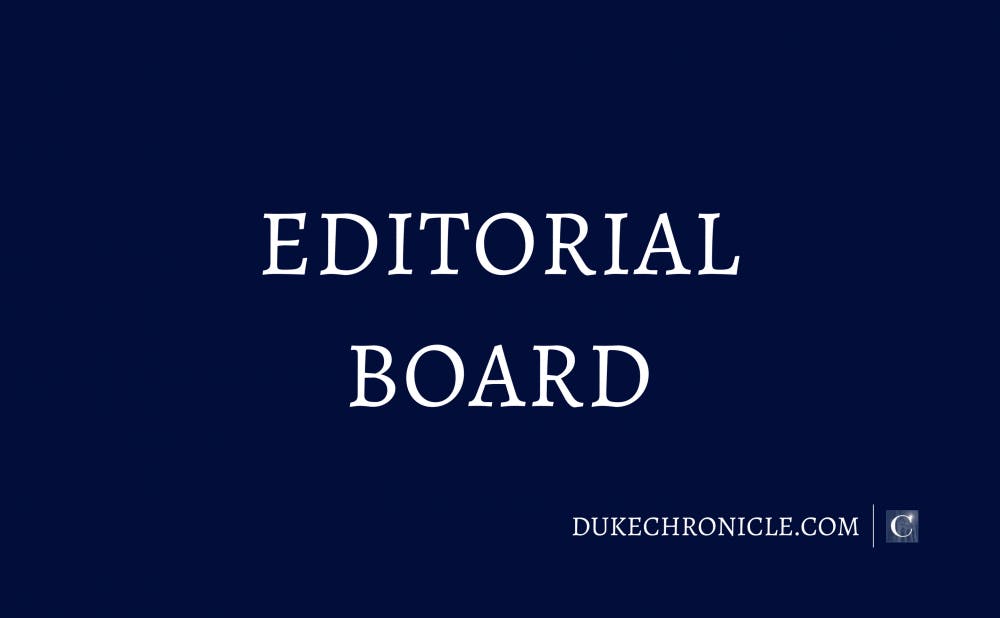In February, United Methodist Church officials and members from all around the world—including a delegation from the Duke Methodist ministry—in a split vote decided to double down on its existing ban on LGBTQ+ clergy and same-sex marriages. While Duke as a whole has not commented on the decision, despite the fact that it was founded as a Methodist university, others have spoken up. The Campus Minister of Duke Wesley (Duke's Methodist congregation), responded to the vote with a statement reaffirming LGBTQ+ people's place in the Methodist church. Greg Jones, dean of Duke's Divinity School, issued a statement saying that he and others are "grieving the deep wounds to the United Methodist Church." A columnist for The Chronicle, Nathan Heffernan, wrote an opinion piece calling for inclusion in religion—the Catholic church, specifically. Clearly, there is opposition to the vote and there is support for LGBTQ+ students on campus, but the question of whether or not it is enough in the face of larger religious institutions remains.
In vocalizing support for LGBTQ+ people, groups risk losing the funding and legitimacy that the overall United Methodist Church provides. The same institutional pressure to uphold exclusionary policies also exists in many other ministries on campus. The critiques of the UMC and other religious institutions are valid, and Duke undergraduate Christian groups groups deserve similar scrutiny. LGBTQ+ students learn how to navigate religious life at Duke solely through word of mouth. The homophobia and transphobia that LGBTQ+ students can face within religious spaces are sometimes taken as immutable qualities. Outdated views on gender and sexuality in spiritual circles can be alienating and put LGBTQ+ individuals in a position where they feel they must between their identity and faith.
The bottom line of all this exclusion is this: LGBTQ+ people are suffering. Those who do not yet have the agency to leave these institutions are facing horrors such as conversion therapy. Those seeking religion and/or spirituality of their own accord are often being turned away. Religious LGBTQ+ people exist, and they are not walking oxymorons. All that exclusion does is harm vulnerable congregation members. By not taking identity-affirming stances, religious organizations are failing to serve members of their congregation—both current and prospective.
Inclusion of all people in religious communities is possible; in fact, there are many examples of it on Duke's campus alone. In the Divinity School, LGBTQ+ students have their own student group, Sacred Worth. This collective was represented among a group of students who presented a list of LGBTQ+ related demands at the Divinity School State of the School address last year. Jewish Life at Duke along with many other non-Christian institutions at Duke are consistently making small, radical changes that don't necessarily make the news. This includes designated gender neutral bathrooms, flexibility when it comes to gender-specific religious rituals and sharing pronouns at the start of every meeting. The discussion group, Queer and Trans Christians—formerly known as Liberating the Faith—is an intentionally healing and accepting space for undergraduates who are interested in exploring Christianity while celebrating sexuality and gender variance. In the Triangle, there are a number of accepting religious organizations and community centers as well as an interfaith Religious Trauma Support Group that meets at the LGBTQ Center of Durham every month. LGBTQ+ religious folks and allies have set plenty of precedents in all faiths already. Religious groups that still exclude do not have an excuse.
The United Methodist Church's vote was disappointing and hurtful—nothing can change that, and nothing can erase that kind of alienating pain. However, there are existing spiritual institutions doing meaningful work of making worship inclusive. LGBTQ+ folks deserve acceptance and although religion isn't at always the only place they can find it, faith should be accessible to any and all who seek it out. No exceptions. So to LGBTQ+ faith leaders and allies, keep listening, learning and living out values of love and acceptance. And to all LGBTQ+ people, no matter your relationship with faith: you are seen and you are loved.
This was written by The Chronicle’s Editorial Board, which is made up of student members from across the University and is independent of the editorial staff.
Get The Chronicle straight to your inbox
Sign up for our weekly newsletter. Cancel at any time.

